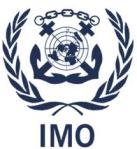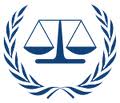On January 18, 2013 the Supreme Court of the Union of India entered the fray of the Enrica Lexie incident by issuing a decision on the fate of the Italian military guards, Massimiliano Latorre and Slavatore Girone, who are accused of killing two Indian fishermen. This incident has been discussed at length on this blog. An overview of the facts and prior developements can be found by following the links here. The court, in clear terms, reaffirmed India’s jurisdiction over the alleged crimes based both on international and national laws. The court also made certain pronouncements regarding internal divisions of jurisdiction within India. My comments here will be limited to the international legal aspects of the decisions.
Italy challenged the jurisdiction of the Indian court on several grounds. The main thrust was that the guards could not be tried before the Indian courts because their actions were taken as part of their official military duties and therefore covered by sovereign immunity.[1] Italy also made arguments based on the United Nations Convention on the Law of the Sea (hereinafter UNCLOS), principally that the flag State has exclusive jurisdiction over the events that take place aboard a vessel on the high seas.[2] Part of this second argument was an assertion that the Indian fishing boat was not “Indian” within the meaning of the convention and that article 97 gave exclusive jurisdiction to Italy.[3]
 Attorneys for India responded by making arguments primarily based on national provisions extending the penal code to the areas adjacent to the territorial sea such as the international water where the incident took place.[4] The Union’s international law arguments included a detailed analysis of UNCLOS. India argued that article 97 UNCLOS was limited to collision type events and had no bearing on jurisdiction in the Enrica Lexie case.[5] This fact, along with the assimilation of ships to national territory and the objective territoriality principle, were sufficient to ground Indian jurisdiction.[6] India also argued that the passive personality principle would grant jurisdiction in this case.[7] On the issue of immunity, the Union pointed out that the State has a policy of not entering Status of Forces Agreements excluding national jurisdiction and that there was no basis for a sovereign immunity claim in a criminal case.[8]
Attorneys for India responded by making arguments primarily based on national provisions extending the penal code to the areas adjacent to the territorial sea such as the international water where the incident took place.[4] The Union’s international law arguments included a detailed analysis of UNCLOS. India argued that article 97 UNCLOS was limited to collision type events and had no bearing on jurisdiction in the Enrica Lexie case.[5] This fact, along with the assimilation of ships to national territory and the objective territoriality principle, were sufficient to ground Indian jurisdiction.[6] India also argued that the passive personality principle would grant jurisdiction in this case.[7] On the issue of immunity, the Union pointed out that the State has a policy of not entering Status of Forces Agreements excluding national jurisdiction and that there was no basis for a sovereign immunity claim in a criminal case.[8]
The actual decision of the court was issued in a two-page order. The motivation or reasoning of the decision came in two opinions, one by the Chief Justice. These two opinions are not completely consonant even though they agree in the result. We will turn first to the Chief Justice’s views before analyzing those expressed in his fellow judge’s concurrence.
The Chief Justice identified two issues that needed to be resolved in the case: one national and one international. The international problem was that of Indian jurisdiction based on applicable law, including UNCLOS, which India was bound to follow.[9] The Chief Justice started by refuting the Italian argument based on article 97 of UNCLOS. After observing that there was no collision in this case the justice reasoned
The next question which arises is whether the incident of firing could be said to be an incident of navigation. The context in which the expression has been used in Article 97 of the Convention seems to indicate that the same refers to an accident occurring in the course of navigation, of which collision between two vessels is the principal incident. An incident of navigation as intended in the aforesaid Article, cannot, in my view, involve a criminal act in whatever circumstances. In what circumstances the incident occurred may be set up as a defence in a criminal action that may be taken, which legal position is accepted by both the countries which have initiated criminal proceedings against the two marines. Even the provisions of Article 100 of UNCLOS may be used for the same purpose. Whether the accused acted on the misunderstanding that the Indian fishing vessel was a pirate vessel which caused the accused to fire, is a matter of evidence which can only be established during a trial. If the defence advanced on behalf of the Petitioner Nos. 2 and 3 is accepted, then only will the provisions of Article 100 of the Convention become applicable to the facts of the case.[10]
Following the Lotus case, therefore, jurisdiction would be proper.[11] Next, the justice observed that States only have limited jurisdiction outside of the territorial sea that are limited by UNCLOS.[12] Unfortunately, this limit is not described and the Chief Justice asserts Indian jurisdiction over the incident based on this limited grant without further deliberation.[13]
Judge Chelameswar issued an opinion agreeing with the judgment but on different grounds. His views were almost entirely based on internal law. The important international component was his assertion that jurisdiction itself is based on “the legitimate interests” of the State asserting its authority.[14] He then used the passive personality and the objective territorial principles as evidence of this existing jurisdiction.[15] Either of which would therefore be sufficient to ground jurisdiction in this case.
I would like to begin my analysis by looking to the contentions surrounding article 97 UNCLOS. This provision reads in pertinent part,
In the event of a collision or any other incident of navigation concerning a ship on the high seas, involving the penal or disciplinary responsibility of the master or of any other person in the service of the ship, no penal or disciplinary proceedings may be instituted against such person except before the judicial or administrative authorities either of the flag State or of the State of which such person is a national.
Italy argued that the shooting was an “incident of navigation” and so wholly within her jurisdiction.[16] Both opinions corrected concluded that article 97 was implemented with the limited scope of overturning the ruling in the Lotus case when it came to collisions and similar events on the high seas. It was not designed to undo the general principles of State jurisdiction. The problem with the justices’ analysis lies rather with the application of the passive personality principle.
Article 92 of UNCLOS provides,
Ships shall sail under the flag of one State only and, save in exceptional cases expressly provided for in international treaties or in this Convention, shall be subject to its exclusive jurisdiction on the high seas. A ship may not change its flag during a voyage or while in a port of call, save in the case of a real transfer of ownership or change of registry.
 This is enough to preclude the application of the passive personality principle. If the nationality of the victim were enough, India would have had jurisdiction over the events if they had occurred entirely on board the Lexie. Such a result would render article 92’s provisions on exclusive jurisdiction without meaning. Such a reading should therefore be avoided. However, given the existence of other bases of jurisdiction, the justices’ overstatement of the application of the passive personality principle is not fatal to the international validity of the judgment.
This is enough to preclude the application of the passive personality principle. If the nationality of the victim were enough, India would have had jurisdiction over the events if they had occurred entirely on board the Lexie. Such a result would render article 92’s provisions on exclusive jurisdiction without meaning. Such a reading should therefore be avoided. However, given the existence of other bases of jurisdiction, the justices’ overstatement of the application of the passive personality principle is not fatal to the international validity of the judgment.
The most unfortunate part of the Supreme Court’s judgment was its declining to fully address the issue of sovereign immunity for the Italian guards. The court rejected the argument but did so without an analysis of applicable international law. The court instead punted on the issue leaving it to be re-litigated based on the evidence in light of article 100 of UNCLOS. This last provision is nothing more than an obligation for the States party to co-operate in the fight against piracy. Presumably, this means that if the Italian guards were actually fighting piracy, article 100 UNCLOS would protect them from trial. This, however, would be a strange and unfortunate interpretation of a treaty provision that mentions neither jurisdiction nor immunity.
Most of the UNCLOS aspects of the Enrica Lexie incident appear to have been resolved by the Supreme Court of India. What remains now is a determination on the immunity of the guards and the facts of the case. It seems to me, that if the guards are determined to have been “fighting piracy” they will in fact be innocent of the crimes with which they are accused. At the same time, under the court’s probable reading of UNCLOS, this fact will grant them immunity. If they are instead found to have been acting outside of their mandate (for whatever reason) they will in fact be guilty of the crimes with which they are charged and not benefit from immunity. The Supreme Court would have done better to settle this issue once and for all and leave the trial to address the accusations alone.
[1] Decision of the Supreme Court at ¶¶ 7, 13, 29, 42, 45.
[2] ¶ 26.
[3] ¶¶ 26, 29, 31, 38.
[4] ¶¶ 51-52, 55.
[5] ¶ 64.
[6] ¶¶ 60, 65.
[7] ¶ 63.
[8] ¶¶ 69-70.
[9] ¶ 97.
[10] ¶ 94.
[11] ¶ 95.
[12] ¶ 99.
[13] ¶ 100.
[14] ¶ 25 of the concurring opinion.
[15] ¶¶ 27-28.
[16] Decision of the Supreme Court at ¶¶ 26, 29.




